Truth Matters Newsletters – November 2009 – Vol. 14 Issue 11 – Does the Bible Support A Doctrine of Being Slain in the Spirit? Part 2 of 3 – by Rev. Robert S. Liichow
Discernment Ministries International
Does the Bible Support A Doctrine of Being Slain in the Spirit?
Part 2 of 3
By Rev. Robert S. Liichow
The “Ministry” of the Catchers
This phenomena has caused the need to develop a “new” ministry within the church, that of the Catcher. No matter where you go, whether it is to a revival service at Toronto, Pensacola or a Vineyard Fellowship you will encounter the ministry of the Catchers. This is an actual “ministry” within charismatic fellowships and people are trained in how to fulfill this duty (it is often done by the ushers within a local assembly).
A catcher is a man who stands behind those receiving prayer. Their job is to “catch” the people who are being slain in the spirit. The catchers job is to make sure the person being “blessed” does no harm to themselves or those around them. Charismatic congregations even have written guidelines for catchers:
Tips For Catching People:
1. Do not touch the person being prayed for, but reassure them that there is someone behind them.
2. You don’t have to take a hold of their shoulders as if you are going to help God.
3. As the person moves down, move back and then facilitate their move.
4. Men- be careful when touching women.
5. Get them to fall back, not forward.
6. Catchers – ONLY catch, do not pray. Do not wave your hands only stand and be ready to catch.
7. Please do not push or pull anyone over. God does not need any help and it will ultimately backfire.
8. Do not hold anyone up by grabbing their shoulders or upper back.
Let me begin by asking a rhetorical question. If the power of God is knocking people down and placing them in an altered state of consciousness for the purpose of spiritually blessing them, then why do these churches employ the use of catchers?
The answer is quite simple —- if people are falling flat on their backs from an upright position they are very liable to hurt themselves or others.
We previously read that extremists explain this manifestation as being the result of encountering the power and presence of the Holy Spirit. If this is so, He is not mighty enough to see to it that those He sovereignty knocks down are unhurt by His blessing?
These churches employ catchers because: (1) they know people fake being slain many times. (2) They lack faith in their own stated beliefs. Obviously God is not big enough to safeguard His people.
In our former church along with the male catchers we had sisters who came along beside or behind the catchers with large sheets of material. Their ministry was to place these sheets over the women’s legs and bodies. Why? Because many times when women would be slain in the spirit they would fall in very immodest positions.
We had events where when some unfortunate women fell their dresses would be hiked up their bodies quite a bit, and their legs would be splayed out at inappropriate angles. When the Lord choose to embarrass His daughters in this manner we had to be there to quickly cover up their shame. Does this really sound like something the Lord God would do to His daughters?
Not only can being slain in the spirit prove to be embarrassing to a woman, it can prove deadly as well. Mrs. Ella Peppard died as a result of someone falling on her who had been slain in the spirit.
The ushers quickly pulled her off the stage and sat her in a pew where she cried out in pain for 20 minutes….The woman’s family alleged the ushers refused to call an ambulance because an ambulance would not look good at a miracle service. A lawsuit was settled out of court. Hinn says he never knew the woman was injured or he would have sought medical help.
According to charismatic theology the Holy Spirit will place women in morally embarrassing positions, and at times allow some people to be hurt and/or killed.
I know from past experience (I used to be a catcher) that when there was no one standing behind a saint receiving prayer nine times out of ten they would not fall down. This alone is proof to me that what is taking place is not a sovereign move of the power of God. There is a power involved at times but it is not of God.
3
The Historical Roots of the Phenomenon
I began by citing Stanley Burgess’s definition in the first chapter and it is a good one except for one point – he says it is a relatively “modern” expression. His statement is not correct. People have been allegedly falling under the power in the United States since the early 1760’s. It was a common expression among the Shakers. There were groups before the Shakers in Europe, which had this same manifestation:
The Convolutionaries
The extreme exercises of the “convolution Aries” startled Belgium and France. The grave of a young Jansenist clergyman, Francois de Paris, in the cemetery of Saint-Medard in Paris, because the scene of reputed marvelous cures. Multitudes flocked thither for healing. Strange bodily agitations seized the devotees. They fell in shakings and convulsions, threw themselves about on the ground, screamed, and assumed unusual and often unseemly postures.
The Shaker’s
Later on in the mid seventeen hundreds in America the Shaker cult also had people falling under the power. Their bodily agitations or exercise were various and called by various names, as the falling exercise…The falling exercise was very common…The subject of this exercise would, generally with a piercing scream, fall like a log on the floor, earth, or mud, and appear as dead.
The Shakers were a cult group led by a woman named Ann Lee. Many of the manifestations which are common to charismatic extremism, were first practiced by the Shakers. Since the Shakers were a pagan cult the source of their manifestations could not have been the Holy Spirit.
The Shakers were very evangelistic in their zeal to propagate their false doctrines & practices. Shaker evangelists were involved with the Cane Ridge “Revival,” and brought their manifestations (which they called “signs”) with them and infected the meetings.
People Were “Slain” During the Cane Ridge Revival
It was during the Cane Ridge meetings that we see more examples of the manifestation of being slain in the spirit. The underlining is added for emphasis:
The scene to me was new and passing strange…Many, very many fell down, as men slain in battle, and continued for hours together in an apparently breathless and motionless state sometimes for a few moments reviving, and exhibiting symptoms of life by a deep groan, or piercing shriek, or by a prayer for mercy most fervently uttered…Then the woman who had first stated shouting let out a shrill of anguish. Methodist John McGee, seemingly entranced, made his way to comfort her. Someone (probably his Presbyterian brother) reminded him this was a Presbyterian church; the congregation would not condone emotionalism! Later John recalled, “I turned to go back and was near falling; the power of God was strong upon me. I turned again and, losing sight of the fear of man, I went through the house shouting and exhorting with all possible ecstasy and energy, and the floor was soon covered with the slain” people were falling in ecstasy.
This eyewitness of the Cane Ridge excess described the people falling in “ecstasy,” but is this necessarily a good thing? Pagan religion has long been given over to ecstatic forms of worship (see 1 Kings 18:28). The Oracle at Delphi breathed in the fumes which rose from the ground and in an ecstatic state uttered prophecies which directed the lives of many people.
ECSTASY The state of being in a trance, especially a mystic or prophetic trance. The derivation of our word “ecstasy” (from the Greek ek, out plus stasis, state) suggests an out of body state (2 Cor. 12:2,3) or the state of being out of control.
From what I have personally witnessed and experienced being slain in the spirit is a condition in which the individual’s normal rational mental state is suspended, and that person is for a period of time literally out of control. During the Shaker meetings and at Cane Ridge we find multitudes of people capitulating their volitional sensibilities over to an experience which was so great it physically overwhelmed them. However, it was also noted by the orthodox Reformed ministers at Cane Ridge, that a person simply getting slain was not a true indicator of spiritual regeneration, “They noted that some who “fell” had within six months gone back to the world.”
The Ministry of Charles Finney
After the Cane Ridge revival the experience of being slain in the spirit became common in many revival meetings. One evangelist in particular whose revival meetings were patterned after the emotional excesses of Cane Ridge was Charles Finney. In many of his meetings people were slain in the spirit:
Before the week was out I learned that some of them, when they would attempt to observe this season of prayer, would lose all of their strength and be unable to rise to their feet, or even stand upon their knees in their closets.
The congregation began to fall from their seats in every direction, and cried for mercy. If I had had a sword in each hand, I could not have cut them off their seats as fast as they fell
Finney was not particularly concerned with scriptural precedent, he was interested in getting result and fostered the belief that revival was not a sovereign move of God’s Spirit, but that revivals could be planned and worked up by the use of what he called new measures.
The Ministry of Maria Woodworth Etter
Being slain in the spirit was one of the ordinary signs in the ministry of Maria Woodworth-Etter (1844-1924) the trance evangelist.
Yesterday during the afternoon meeting the Lord Jesus bowed the heaven and came down. Many went under the power. Two women and a girl were struck down unconscious, and lay on the floor…The second woman lay unconscious for about two and one-half hours, with both arms raised to heaven. When she was recovering she sang praises unto God in the spirit.”
Her ministry manifestations began in 1885, 21 years before the Azusa “revival.” She received a spiritual renewal at a Friends meeting in 1879. Here is a woman, who received some type of spiritual power from a Quaker meeting. Keep in mind that the Society of Friends, the Quakers, were originally a non-Christian group (although many people unknowingly lump them in with Christian groups).
Maria would go into trances, people came to her while she was in a trance state and allegedly got “saved.” She would lay hands on others and place them in a similar trance-state.
The Ministry of Aimee Semple McPherson
The practice of people being slain was not widespread in Pentecostal circles after Etter’s death. It became more commonplace through the ministry of another woman minister named Aimee Semple McPherson (1890-1944). Sister Aimee was also a traveling evangelist and she too had people fall out under the power in her ministry—
One of these was a Sunday school teacher at the city’s largest Protestant church. After Aimee touched him, he dropped to the floor trembling and speaking in tongues. The next day, the wife of a leading citizen had a similar experience, and scores of people came to the altar for counseling. The day after that, “Three were slain under the power and through speaking in tongues,” Aimee said.
Aimee was very controversial to say the least. She is the Founder of the Foursquare Gospel denomination. She later died of a barbiturate overdose in 1944. To this day charismatic believers ignore the fact that she was a divorcee and most likely faked her own kidnapping in order to spend time in an adulterous liaison in 1926. Yet the power of God is supposed to have flowed mightily through during her life!
The Ministry of Kathryn Kuhlman
The next major figure whose ministry is responsible for making the practice of being slain in the spirit part-and-parcel of charismatic healing and miracles services was Kathryn Kuhlman (1907-1976).
Kathryn committed adultery with a married man, who left his wife and children to marry Kathryn. A few years later Kathryn divorced him and never remarried. She died of heart disease in 1976. I bring these distasteful facets up because it show some of the character of these mighty Pentecostal/Charismatic giants of the faith. I am not saying these people were not saved, nor that they did not sincerely repent of their sins. However, character does matter in ministry.
Apart from the well-documented healings, the most sensational phenomena associated with Kuhlman was “going under the power” (sometimes referred to as “slain in the Spirit”) as people fell when she prayed for them. This sometimes happened to dozens at a time and occasionally hundreds.
Her ministry was international in scope. Well received by many Pentecostal’s and the fledgling charismatic renewal movement of the 1960’s.
I have witnessed Mr. Kenneth Hagin have a long line of people hold hands and he lay hands on the head of the first person and then the entire line fall down. I have personally seen Benny Hinn whirl around and “throw” a wave of anointing in his meetings and multitudes have fallen, as if shot on several occasions. As recently as August 1, 1997 my wife and I were at the Toronto Airport Church and we witnessed multitudes being slain in the spirit as John and Carol Arnott laid hands on people.
The Phenomenon Is Universally Accepted By Charismatic Christians Today
This experience is almost universal to all charismatic’s. If you know any, ask them if they have ever been slain in the spirit and what it was like.
This practice and manifestation is accepted de facto due in large part to the following:
- The long history behind it, i.e. God has always done this.
- Their own subjective experience of it, they got “blessed.”
- They have been taught that the Bible clearly teaches this is a legitimate experience of what takes place when God’s power comes on an individual.
As with holy laughter today’s revivalists strongest case is that of historical precedent. Yet when anyone takes an honest look at the history of this manifestation, they see a historical background of occultism (with the Shakers), aberrant mystics like Maria Woodworth-Etter, and ministers of dubious character such as Aimee McPherson and Kathryn Kuhlman. The historical case is not sufficient, nor will it ever be, to overrule the plain teachings of the Bible.
From an exegetical view point the revivalist have even less support. None of the texts they cite as “proof” for this practice can be legitimately applied. All of the texts have to do with divine encounters which were extremely important to the plan of God either for Israel as a nation or for the Church. It is not enough to locate texts which denote someone falling and then interpret them to refer to being slain in the spirit. All of their comparisons are at best apples-to-apples. None of the writings of the Early Church Fathers indicate any such manifestation as part-and-parcel of normal Christian experience, in fact, they never mention it at all. One would think that these writers would have recorded some evidence of this manifestation in their writings if it was a genuine experience given by the Holy Spirit, especially one that alleges to bestow ministry calls, visions of the Lord, emotional and physical healing. Yet the historic record of the Church for almost 1,700 years is totally silent on this matter.
As I have already stated the history behind this practice is extremely questionable at best. The earliest references we have of it in America come from the Shakers, a non-Christian cult of necromancers. The familiar spirits (demons) told the Shakers at the same time in their various communes that they, the spirits, were leaving the Shakers and going to visit the “world’s people,” and would do so by various manifestations. This did occur and many Christian sects, unsound in doctrine were open to such forms of enthusiasms, and this deception continues to this day. The practice of being slain in the spirit is less than four hundred years old, and has had only marginal acceptance at best in the past. However, this has changed in our time.
Now with rapid growth of neo-Montanism with the Church this practice is now a common, sometimes weekly experience for literally millions of people professing the name of Jesus Christ.
The sheer numbers of people submitting to an experience does not validate it as biblical. Truth is not determined by consensus. Truth is revealed to us by the written Word of God. The Westminster Confession of Faith states what the Christian’s relationship to the Bible ought to be:
IV. The authority of the Holy Scripture, for which it ought to be believed, and obeyed depends not upon the testimony of any man, or Church; but wholly upon God (who is truth itself) the author thereof: and therefore it is to be received, because it is the Word of God.
VI. The whole counsel of God concerning all things necessary for His own glory, man’s salvation, faith and life, is either expressly set down in Scripture, or by good and necessary consequence may be deduced from Scripture: unto which nothing at any time is to be added, whether by new revelations of the Spirit, or traditions of men. Nevertheless, we acknowledge the inward illumination of the Spirit of God to be necessary for the saving understanding of such things as are revealed in the Word:
God’s Word along is the standard by which we live. His Word contains all things necessary for salvation, faith and life. These things are expressly set down in the Bible, or “by good and necessary consequence may be deduced from Scripture.” This deduction however is not accomplished by violating the principles of hermeneutics and wresting the texts from their context in order to attempt to make them fit one’s experience.
This is exactly what today’s revivalists have done regarding being slain in the spirit. This experience is not mentioned once contextually in the entire Bible. Every text the revivalists site as proof of their non-biblical practice has been taken from it context and misapplied.
The revivalists have failed both historically and biblically to make their case that this manifestation is the result of the Holy Spirit or the glory of God coming upon an individual to such a degree their physical bodies cannot withstand it. And thus fall to the ground in some form of a trance-like condition. With this in mind we must seek other explanations.
Learned Behavior
There is an undeniable element of learned behavior with this phenomena. A minister gets up and preaches, towards the end of the message he or she will begin to make allusions to what people may see or experience while being prayed for. Often some of the texts we have considered will be sited to validate what the congregation will see or personally experience. The catchers are called forward and then an alter call is given. The first people are lined up with catchers behind them. Hands are laid on the people and some of them begin to fall into the arms of the catchers. The other people are observing this behavior. When their turn comes, they too fall down.
This is the basic pattern of ministry I have personally observed for over fifteen years, it was the pattern I also used while in full-time charismatic ministry. Although not done consciously, I and other ministers, were setting the state by psychologically preparing the people in advance. On the part of the people, they wanted to get blessed, they wanted a stronger “anointing” or deeper walk with Christ. Seeing others fall, they too fell. Many times I knew as a minister that people were simply “faking it.” How? When people came up for prayer I would notice them quickly look behind them to make sure there was a catcher there to “catch” them when they fell. These fakers, came knowing in advance that they were going to fall, and they wanted assurance they would be caught. ♦
(TO BE COMPLETED NEXT MONTH!)
Copyright 2009 Robert S. Liichow
* Color-highlight and some bolding are not in the original book by Robert S. Liichow.
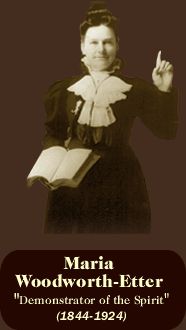
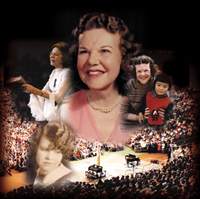
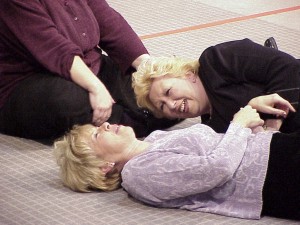
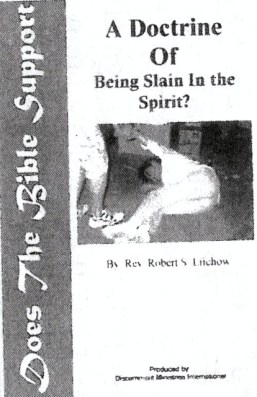
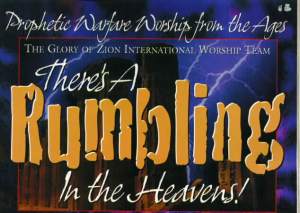
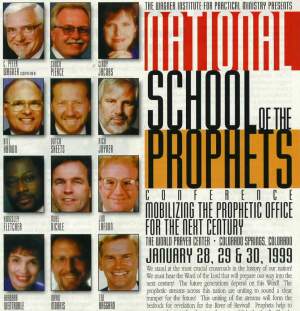
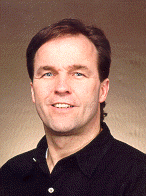
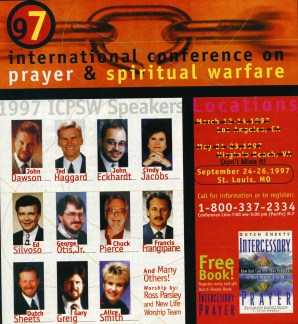
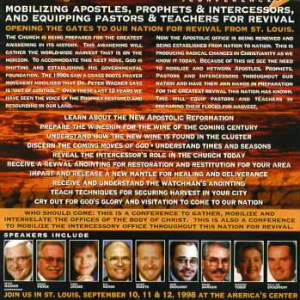


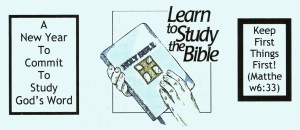
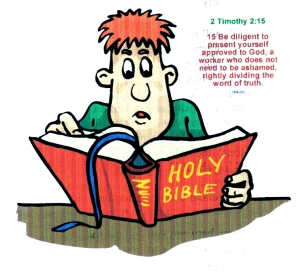
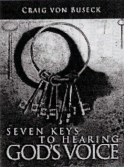

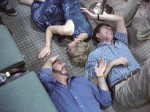



You must be logged in to post a comment.